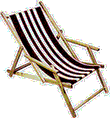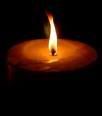Thursday, June 17, 2010
What they mainly do is remember
I've had disagreements with other poets - not serious ones - about the place of political opinion in poems, & the role of poets in advocating political change. But those were when I was a very young poet. My view was that poems pretty much chose their own subjects, & if one's poems were heavily weighted toward political opinion & large current events, one ought to consider switching to prose. Not many poets are good at incorporating headlines. If you're going that way, you have to push through the breaking news aspect, which is mostly fit to line bird cages within a few weeks if not days. Over time, even the more engaged poets I knew averaged out, as they discovered other strengths. Two of them became among the finest, most deeply observant & insightful "nature" poets I've read, & both have also written beautifully about their children.
In my experience, poets rarely discuss politics when they gather. What they mainly do is remember, & jog each others memories. Some have amazing, detailed memories of childhood. We all recall when we fell in love with poetry, usually in grammar school. 4th grade for me, Miss Olson. Miss Olson was an old-school unmarried teacher, the kind we believed lived & breathed teaching 24/7 only to find out later, when we went back to the school to visit (they loved hearing from former students) that they they were independent women of broad cultural interests; classical music, gardening clubs, local book societies, Friends of the Library. Some of them no doubt lived discreetly with "companions." None of our business.
Poets feel (or ought to feel) a responsibility from knowing that the only encounter most readers have with the people we put in our poems is through the poems, & the poems provide only an episodic glimpse. Anything more would require autobiographical prose. So the glimpse ought to be accurate, or if fanciful, wrapped in humor & presented obviously as another form of truth. It's usually easy to tell the difference.
Poets may also be strong "traditionalists," which is not the same as being conservative. We could care less about "appearances," purple hair, tattoos; or one's sexual preferences. We're not ageists. The kid poet may be more naturally talented & way ahead of where we were at that age, & we just have to accept it as a condition of creativity. Older poets have incomparable experience. Edie Eustice, the long-time host of Poetswednesday in Woodbridge NJ, had very popular, informal gatherings at her small home, poets & musicians of all ages. They were salons. Some of these gatherings were spontaneous; you'd call, she'd say so-& so was there, c'mon over, & by the time you arrived five or six others would be crammed in at the kitchen table. These went on over two decades until she moved to Pennsy, where she still has them but with less frequency.
"If a nation expects to be ignorant and free, in a state of civilization, it expects what never was and never will be." Thomas Jefferson
In my experience, poets rarely discuss politics when they gather. What they mainly do is remember, & jog each others memories. Some have amazing, detailed memories of childhood. We all recall when we fell in love with poetry, usually in grammar school. 4th grade for me, Miss Olson. Miss Olson was an old-school unmarried teacher, the kind we believed lived & breathed teaching 24/7 only to find out later, when we went back to the school to visit (they loved hearing from former students) that they they were independent women of broad cultural interests; classical music, gardening clubs, local book societies, Friends of the Library. Some of them no doubt lived discreetly with "companions." None of our business.
Poets feel (or ought to feel) a responsibility from knowing that the only encounter most readers have with the people we put in our poems is through the poems, & the poems provide only an episodic glimpse. Anything more would require autobiographical prose. So the glimpse ought to be accurate, or if fanciful, wrapped in humor & presented obviously as another form of truth. It's usually easy to tell the difference.
Poets may also be strong "traditionalists," which is not the same as being conservative. We could care less about "appearances," purple hair, tattoos; or one's sexual preferences. We're not ageists. The kid poet may be more naturally talented & way ahead of where we were at that age, & we just have to accept it as a condition of creativity. Older poets have incomparable experience. Edie Eustice, the long-time host of Poetswednesday in Woodbridge NJ, had very popular, informal gatherings at her small home, poets & musicians of all ages. They were salons. Some of these gatherings were spontaneous; you'd call, she'd say so-& so was there, c'mon over, & by the time you arrived five or six others would be crammed in at the kitchen table. These went on over two decades until she moved to Pennsy, where she still has them but with less frequency.
Labels: about writing














